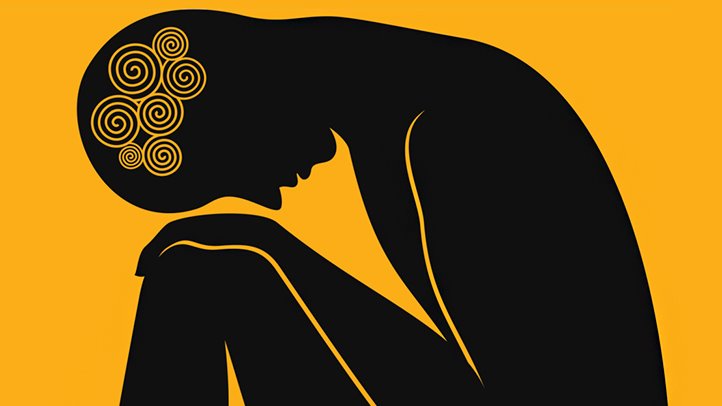Living with depression can feel like an insurmountable challenge, affecting every aspect of your life. Depression therapy offers a pathway to healing, providing tools and support to manage and overcome this debilitating condition. At Life Changes Therapy in Mississauga, we are committed to helping individuals navigate their journey toward mental wellness. This article explores the transformative impact of depression therapy on your life.
- Emotional Healing and Stability
Depression therapy provides a safe space to explore and understand your emotions. A skilled therapist can help you identify the root causes of your depression and work through the pain, sadness, and anxiety that accompany it. This emotional healing is crucial for achieving stability and regaining a sense of balance in your life.
- Improved Self-Awareness
Understanding yourself is a key component of managing depression. Therapy encourages self-reflection, helping you to recognize patterns of negative thinking and behavior. By increasing self-awareness, you can identify triggers and learn to respond to them in healthier ways, breaking the cycle of depression.
- Enhanced Coping Strategies
Depression can make even the simplest tasks feel overwhelming. Therapy equips you with practical coping strategies to manage stress, anxiety, and other symptoms of depression. Techniques such as cognitive-behavioral therapy (CBT), mindfulness, and relaxation exercises empower you to handle daily challenges more effectively and maintain your mental well-being.
- Building Resilience
Therapy helps you build resilience, enabling you to bounce back from setbacks and handle future stressors with greater ease. By developing a toolkit of coping mechanisms and emotional skills, you become more resilient, fostering a stronger sense of self and an improved ability to navigate life’s ups and downs.
- Strengthening Relationships
Depression often strains relationships with family and friends. Therapy can improve your interpersonal skills, helping you communicate more effectively and rebuild connections. By learning to express your needs and listen to others, you can foster healthier, more supportive relationships that contribute to your overall well-being.
- Developing a Positive Outlook
One of the most profound changes that therapy can bring is a shift in perspective. Through guided therapeutic processes, you can begin to challenge negative thought patterns and develop a more positive, hopeful outlook on life. This change in mindset is essential for long-term recovery and a happier, more fulfilling life.
- Personalized Treatment Plans
Depression therapy is not a one-size-fits-all approach. Therapists at Life Changes Therapy create personalized treatment plans tailored to your unique needs and circumstances. Whether through individual therapy, group sessions, or a combination of methods, you receive targeted support designed to address your specific challenges.
- Empowerment and Self-Efficacy
Therapy empowers you by giving you the tools and confidence to take control of your mental health. By setting achievable goals and celebrating progress, you can build self-efficacy, reinforcing your ability to manage depression and lead a more fulfilling life.
Conclusion
Depression therapy offers a transformative journey toward emotional healing, self-awareness, resilience, and a positive outlook on life. At Life Changes Therapy, we are dedicated to providing compassionate and effective treatment to help you overcome depression and embrace a brighter future.
Unique FAQs
- How can I start therapy if I’m feeling too overwhelmed to seek help?
- It’s normal to feel overwhelmed when starting therapy. Begin by taking small steps, such as contacting a therapist for an initial consultation. The first step is often the hardest, but therapists are there to support you through the process.
- What types of therapy are effective for depression?
- Various types of therapy, including cognitive-behavioral therapy (CBT), interpersonal therapy (IPT), and mindfulness-based cognitive therapy (MBCT), have proven effective in treating depression. Your therapist will recommend the best approach based on your specific needs.
- How long does it take to see improvements in depression through therapy?
- The timeline for improvement varies for each individual. Some people may start to feel better after a few weeks, while others may take longer. Consistent attendance and active participation in therapy sessions are crucial for progress.
- Can therapy for depression be combined with medication?
- Yes, many individuals find that a combination of therapy and medication is the most effective approach. Your therapist can work with your healthcare provider to develop a comprehensive treatment plan that includes both therapy and medication if needed.
- Is depression therapy covered by insurance?
- Many insurance plans cover therapy for depression, but coverage can vary. It’s important to check with your insurance provider to understand the specifics of your coverage and any out-of-pocket costs.
Photo by: freepik




I truly wanted to construct a simple note so as to express gratitude to you for some of the fabulous suggestions you are showing on this website. My considerable internet search has at the end of the day been honored with excellent content to talk about with my contacts. I ‘d believe that many of us visitors are quite lucky to exist in a very good site with so many awesome people with useful methods. I feel quite blessed to have encountered your site and look forward to many more excellent minutes reading here. Thanks once again for everything.
You helped me a lot by posting this article and I love what I’m learning.